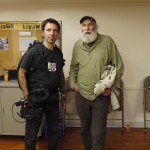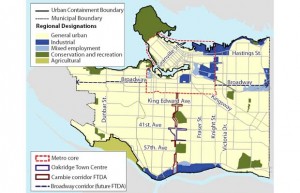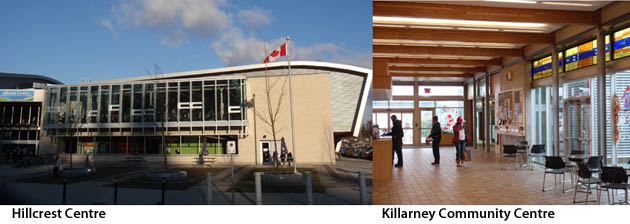Partial archives of top page stories stored here.
Recommended reading and recent articles follow:
Supreme Court: New Yaletown vs CoV.
On trial: The integrity of Vancouver City Hall (secret land swap at 508 Helmcken & 1099 Richards) CityHallWatch Posted on August 15, 2014
What’s really at stake at this four-day B.C. Supreme Court hearing starting August 25? Actually, it’s the very integrity of Vancouver’s City Hall. The integrity of our municipal government.
This lawsuit, launched by the Community Association of New Yaletown (CANY) is one of the most troubling of several legal battles (see list) launched by citizens against the City of Vancouver.
Ultimately, CANY aims to reverse a secret deal to swap public land (508 Helmcken) for a lot that was owned by Brenhill Developments (1099 Richards), cancel the Council’s rezoning approval for a 36-storey tower (508 Helmcken), and force the City to honour its promise to expand Emery Barnes Park (508 Helmcken).
Let’s try to get to the heart of the matter. For starters, what should the public expect from its local government? The City’s Code of Conduct summarizes it nicely (excerpt):
“Council officials, staff and advisory body members are keepers of the public trust and must uphold the highest standards of ethical behaviour. [They] are expected to … make decisions that benefit the community; act lawfully and within the authorities of the Vancouver Charter.”
Read More….http://cityhallwatch.wordpress.com/2014/08/15/new-yaletown-land-swap-brenhill/
******************
Brian Jackson charts future path at Vancouver City Planning Commission meeting (CityHallWatch Posted on August 6, 2014)
Brian Jackson provided a number of updates to the Vancouver City Planning Commission (VCPC) at a meeting on July 30, 2014. Brian Jackson’s official title is the General Manger, Planning and Development Services at the City of Vancouver; however, he also fulfills the role of the Director of Planning.
Mr. Jackson charted the general direction that he sees planning going forward over the next year (assuming, of course, that the current regime stays in power in City Hall). We’ve included a video below of Jackson’s presentation (16 minutes) followed by questions from the VCPC.
See video and read more…http://cityhallwatch.wordpress.com/2014/08/06/brian-jackson-at-vcpc/
******************
“Greenest City” mostly greenwash: Common Ground Magazine
August 2014 Edition
by Elizabeth Murphy
The City of Vancouver’s Greenest City policy update was presented to council in July. Although there are some successes in the plan, the majority of the city’s development policies are greenwash and are actually increasing the city’s environmental footprint rather than reducing it.
For example, the weekly food scraps pick-up has diverted some landfill to compost, which is a positive thing. However, demolitions of mostly older character buildings increased to over 1,000 last year, with about 100 tons per average 2,200-square-foot house going to the landfill. During the first six months of this year, the city approved an all-time record of $1.12 billion in building permits Most of those permits will require the demolition of an existing building, leading to another record year of demolitions.
In addition to building material waste, each demolition usually results in clear-cutting the lot of mature trees and landscaping with a further net loss to the urban forest canopy.
Key findings and analysis in a report by Preservation Green Lab of the National Trust for Historic Preservations included the statement: “Building reuse almost always yields fewer environmental impacts than new construction when comparing buildings of similar size and functionality.” In our climate type, it takes 50 years for a new, single-family home of similar size to overcome, through efficient operations, the negative climate impacts related to the construction process. And it takes 80 years to overcome urban village mixed use redevelopment.
Further, the city’s environmental footprint is increased by the systemic bias toward new towers. Glass wall and concrete construction with elevators is the least energy efficient form of development. Vancouver is now ninth in the world for cities with the greatest number of skyscrapers, which is shocking given that Vancouver’s population is listed at 616,537, making it the only one of the top 10 cities with fewer than 1.6 million.
What has not been given enough consideration is how the adaptive reuse of existing houses with secondary suites, lane houses and infill can accommodate growth. For example, the increased population from 1941 when the West End was mostly single-family houses to when it was substantially built out to apartments in the 1991census was only 70%. This growth could easily have been achieved through adaptive reuse and shows what could be possible in other neighbourhoods.
Instead, Vision’s Greenest City has incorporated and rebranded the NPA’s EcoDensity, which favours tower forms of high density. Adriane Carr and the Green Party of Vancouver understand the limits to growth while Vision ignores this fact, as they ramp up unlimited growth to reward the support of partners in development.
Bike lanes are not Vision’s initiative, though Vision has rebranded bike lanes as its own. In fact, bike lanes have been part of the city’s transportation plan since 1995 under the NPA. Fred Bass, a former COPE councillor, was the early champion of bike lanes on the Burrard Bridge, well before Vision. Bike lanes are not a significant issue in this election; the pace, scale and form of development in the city and affordable housing are the big issues.
Governance through branding and spin is not a sustainable practice. The city has a global reputation as a leader in community planning. We should get back to the proven practices of honest community involvement in neighbourhood planning and incorporate real sustainability principles rather than greenwashing.
–
Elizabeth Murphy is a private sector project manager and a former Property Development Officer for the City of Vancouver’s Housing & Properties Department and for BC Housing. info@elizabethmurphy.ca, www.elizabethmurphy.ca
http://commonground.ca/2014/08/greenest-city-mostly-greenwash/
******************
Posted on July 22, 2014
Bill Good Show – July 21, 2014 Interview
Communities shut out of planning
Radio Interview with Elizabeth Murphy
Interview Link
From CKNW online post:
We are expecting fireworks between Gregor Robertson and Kirk LaPointe in the race for the mayor’s chair this fall. Last week we heard from both Kirk LaPointe and Mayor Robertson and Kirk LaPointe was quick to state that Mayor Robertson is too cozy with developers. Are communities shut out of the planning process? Mount Pleasant, West End, Marpole, DTES (including Strathcona, Chinatown and Gastown) have all been recently rezoned without community support. Elizabeth Murphy says “welcome to the world of double speak, disengagement, loss of democracy and the end of genuine community involvement in planning.” What would sufficient community engagement look like? Will neighbourhood rezoning cost Mayor Robertson politically? Guest: Elizabeth Murphy, Private Sector Project Manager and Formerly A Property Development Officer for the City of Vancouver’s Housing and Properties Department, and for BC Housing
https://soundcloud.com/cknwnewstalk980/bill-good-show-tue-july-21-communities-shut-out-of-planning
******************
Opinion: Communities shut out of planning
CityPlan, which earned Vancouver international recognition, is being ignored
By Elizabeth Murphy, Special to the Vancouver Sun July 15, 2014
The grassroots community in Grandview feels the city continues to avoid its involvement so it is now organizing its process, called Our Community Our Plan.
The most recent neighbourhood plan in Vancouver is for Grandview, an area centred around the Commercial Drive area. Contrary to past practice, to participate in their community’s plan, residents must apply to the city and be chosen by lottery.
The city now also focuses participation in most of its consultation processes based on profiling. The city claims this is more diverse and representative; in reality, it is prejudiced, stereotyped and designed to avoid genuine grassroots involvement.
To appreciate how seriously this new process is in conflict with the City of Vancouver’s international reputation as a leader in public engagement, we must review the context through which it has evolved.
The new community planning process for Grandview is called a citizens assembly. This is entirely new for Vancouver and has only once been used in British Columbia for an issue-based initiative called the citizens assembly for electoral reform. The process was never intended for community planning and is inappropriate for this use.
Interested Grandview community residents will be required to apply to the city to be on the committee. Based on personal data (such as age, gender, renter or owner) they are allegedly categorized into profiles by a computer, then randomly chosen through a lottery process selecting 48 people to represent the community. Each selection in the lottery will need to attend a planning school for nine sessions over eight months to learn the city’s spin.
The community voiced huge opposition in 2013 when the city came to them with a plan to which the community had no input. That plan included a large number of towers of up to 35 storeys and included other rezoning around the area, such as the 15-storey tower at Commercial Drive and Venables Street.
The grassroots community in Grandview feels the city continues to avoid its involvement so it is now organizing its process, called Our Community Our Plan.
The city’s process for Grandview is looking similar to the one recently used in the West End. The West End Mayor’s Advisory Committee (WEMAC) was selected from residents who had to apply by disclosing their profile data.
The mayor’s office also made use of the contact information in the West End neighbours petition calling for “No rezoning without a comprehensive plan” from 11,500 people for the mayor’s messaging prior to the last election in 2011.
WEMAC was closely controlled by the mayor’s office and council without any broader community meetings. Then the city produced a self-serving and biased survey interpreted to confirm predetermined directions. Independent community-organized meetings of over 200 people and numerous letters overwhelmingly critical of the plan were ignored. The plan was approved by council. Tower heights were increased up to 70 storeys in the Robson Street area and up to 20 storeys along lower Davie towards Denman with tower separation drastically reduced from 400 feet to 75 feet.
Compare these current practises under the Vision-dominated council with previous planning practices on which Vancouver earned its honoured reputation.
Read more…
http://www.vancouversun.com/opinion/op-ed/Opinion+Communities+shut+planning/10032025/story.html
******************
Vision and NPA more of the same
By Elizabeth Murphy Common Ground Magazine July 2014 Edition Posted July 1, 2014
Politics in the City of Vancouver is branded as a battle between Vision Vancouver on the “left” and the Non-Partisan Association (NPA) on the “right.” However, their policies have turned out to be virtually the same regarding development when each had the majority on council over the last three terms.
In 2007, then NPA Mayor Sam Sullivan created EcoDensity, which promoted increased density as the answer to the challenge of climate change. It effectively took the position that density is good and more is better.
The facts do not support this. Towers are the least energy efficient form of development because of their glass-wall, concrete construction and elevators. High density development inflates land values; this in turn increases redevelopment pressure on the more affordable older building stock. Only about 10% of the city’s cost of infrastructure and services for each tower is covered by development fees; the balance is subsidized by everyone’s property taxes. Increases in property taxes make home ownership more expensive.
As it became obvious that the supported community plans were under threat by EcoDensity, 23 neighbourhood associations from across the city banded together under an umbrella group called Neighbourhoods for a Sustainable Vancouver (NSV). This led to a city-wide movement against the ill-conceived policy.
******************
Little Mountain Redevelopment Stalled Again: Developer’s refusal to provide amenities symptomatic of a failed housing strategy (article by Ned Jacobs, June 17, 2014)
Since 2009, when all but four of the 224 homes at Little Mountain Housing were demolished, the 15-acre site, which housed a well-functioning community in 2007, has sat fenced off and empty except for a scattering of trees. A single rowhouse building remains because several of the tenants courageously refused to be displaced by BC Housing.
Rather than forcibly remove the tenants, which would have made the provincial government’s ongoing public relations disaster even worse, they were allowed to remain, as chronicled by documentary maker David Vaisbord.
Read more about why the Little Mountain redevelopment is stalled: http://www.littlemountainfilm.com/?p=483
******************
Opinion: City’s plan insufficient to preserve heritage homes: Building-code changes needed to make renovation, restoration viable
By Elizabeth Murphy, Special to the Vancouver Sun June 9, 2014
Note: This opinion piece was published by the Vancouver Sun on June 9, 2014. The City’s Heritage Action Plan goes before City Council on June 10.
Read the whole article in the Vancouver Sun here:
http://www.vancouversun.com/opinion/op-ed/Opinion+City+plan+insufficient+preserve+heritage+homes/9922690/story.html
******************
Character House Network: Letter to Council for June 10 meeting on the Heritage Action Plan (posted 8-June-2014)
The Vancouver Character House Network have requested that NSV post their letter to council on the Heritage Action Plan report going to council Tuesday, June 10, 2014.
The letter notes that although the report is a step in the right direction there are a number of concerns. Of particular note, is that the report includes proposals that would impact RS and RT zones, without public input. Also, the current building code is biased towards new construction and adds significant impediments for renovation of existing character buildings. The report fails to address this issue.
Caroline Adderson, of the Character House Network, has requested the public to send letters to council in support of their letter and to emphasize the following points:
1. Deconstruction is not heritage preservation, but waste management. The city should also include in their proposal changes to the building code which make renovation of older homes easier at the same time they penalize demolition.
2. The city is using “pre-1940” as their cut off for heritage and character homes. The standard definition is “pre-1940s”. In other words, they are ignoring a decade of beautifully crafted homes.
3. The city planner reserves the right to recommend demolition of “character merit buildings” on “underutilized lots (a small building on a large lot)”; this describes most West side homes. Please demand that this clause be removed.
4. Zoning changes should only be implemented with neighbourhood consultation. The public needs to be involved.
For the full letter online and a link to downloadable PDF file, please click here:
https://nsvancouver.ca/character-house-network-on-heritage-action-plan/
******************
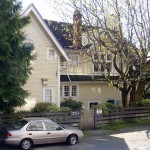 Opinion: We’ve saved character homes before
Opinion: We’ve saved character homes before
Vancouver could improve policies to reduce demolitions of character buildings
This article by Elizabeth Murphy was a Special to The Vancouver Sun, May 23, 2014.
Excerpt: Demolitions of heritage character houses are undermining the city of Vancouver’s green initiatives, affordability objectives, and neighbourhood character…
The loss of these solid livable homes, affordable secondary suites and mature landscaping is dramatically transforming the character of entire neighbourhoods.
The city claims there is not much it can do, but that is not the case. The city’s own zoning bylaws and building codes are largely responsible for the current rate of demolitions. This is under the city’s control.
******************
NSV writes City Council on Marpole Community Plan on April 2, 2014
Reproduced below is the full text of the NSV letter submitted to Vancouver City Council concerning the Marpole Community Plan. This planning document will be debated at a Council Committee meeting on April 2, 2014 at 2 pm.
April 1, 2014
Dear Mayor Robertson and Councillors,
Re: Marpole Community Plan – April 2, 2014
Neighbourhoods for a Sustainable Vancouver (NSV) acknowledges that progress has been made since the Marpole Community Plan process was extended. Concerns remain, however, that have not yet been resolved.
Although the controversial “Thin Streets” has been removed from the plan and much of the single-family zoning remains as requested by the community, other aspects of the plan still need to be resolved. These issues are of city-wide concern since they could set precedents and have broader impacts.
Some examples of the many concerns are as follows:
- excessive heights proposed for development along the arterials
- extent of areas designated to developer driven spot rezonings
- number of older, more affordable rental buildings placed at risk of redevelopment
- lack of affordable housing for displaced tenants
- impacts on traffic and public transportation with a large increase in population
- Canada Line’s capacity to handle the increased demand
- lack of amenities for current residents and future growth
- lack of consultation and no general support for possible future relocation of the Marpole Community Centre from Oak and West 59th Avenue.
- absence of neighbourhood-wide survey (e.g. RPSC CityPlan Choices Survey) to establish level of community support for the range of proposed development areas
- lack of clarity on how other city policies such as the Cambie Corridor Plan Phase 3 may further impact the area of the Marpole Community Plan within the Cambie Corridor.
For full letter click here.
******************
NSV writes City Council on Downtown Eastside Local Area Plan Bylaws, April 1, 2014
Reproduced below is the NSV letter submitted to Vancouver City Council concerning the Downtown Eastside Local Area Plan bylaw changes that will be debated at a Public Hearing on April 1, 2014 at 6 pm. These bylaw changes will affect Gastown, Chinatown, Victory Square, Thornton Park, Hastings, Oppenheimer District, industrial lands and Strathcona.
March 31, 2014
Dear Mayor Robertson and Councillors,
Re: Downtown Eastside Local Area Plan Zoning and Other Bylaw Amendments – April 1, 2014
Neighbourhoods for a Sustainable Vancouver (NSV) is opposed to this proposal for the Downtown Eastside Local Area Plan zoning and other bylaw amendments. The issues raised when the Local Area Plan was approved by council still apply, and this rezoning should not be approved as proposed.
The plan covers very diverse neighbourhoods with many varying community interests. However, this plan is not supported by the affected communities. The process appears to have been orchestrated by the City to put these communities in greater opposition to each other to better serve development interests. A neighbourhood-based process is needed to better address local concerns and needs.
Some examples of the many concerns are as follows:
- Much of the community is made up of vulnerable low income people who will be further threatened, displaced and impacted by the increased development proposed.
- Redevelopment will not help the vulnerable populations that need senior government supports which are not addressed.
- These areas were previously heritage protected both by the province and the city. This is no longer the case. The proposed plan encourages redevelopment without adequate heritage protections that will further inflate land values and increase heritage density transfers that can now be landed in the neighbourhood instead of transferring to outside of the area to reduce development pressures.
- The tower form of development contemplated for this area is not consistent with the heritage character and will make housing more expensive without adequately addressing real affordability.
For full letter click here.
******************
MEDIA RELEASE (March 27, 2014): NSV calls local elections campaign Bills 20 and 21 a DISASTER for DEMOCRACY in Vancouver: Election cycle extended from 3 years to 4 years immediately, with no significant change to campaign financing
(Vancouver) Neighbourhoods for a Sustainable Vancouver (NSV) is not impressed by the BC government’s Local Elections Campaign Finance Act (Bill 20) and the Local Elections Statutes Amendments Act 2014 (Bill 21), both tabled in the BC legislature yesterday.
Bill 20 pays little more than lip service to campaign finance reform and delivers no significant changes prior to the 2014 civic election. For those concerned about the corruptive influence of corporate, developer, union, and foreign political donations, this legislation is a disaster for local democracy.
Read the whole release online here, or download PDF below.
 Media Release
Media Release
******************
NSV writes to Council for Public Hearing on Temporary Sales Office as Conditional Use in RS and RT (Residential) Zoning Districts — OPPOSED. March 14, 2014. Excerpt:
Neighbourhoods for a Sustainable Vancouver (NSV) is opposed to this proposed text amendment to the RS (Single Family) and RT (Duplex) zoning and development by-law.
This proposal has significant implications for neighbourhoods across the city, yet no effective notice has been provided or consultation conducted to establish the extent of public support.
Temporary Sales Offices represent a substantial change in use of residential areas, which is currently not allowed because of impacts related to traffic, parking and signage associated with their commercial nature.
We request that the City consider other more appropriate options such as…
Read full letter here: https://nsvancouver.ca/nsv-to-council-on-sales-offices-in-rs-rt-zones/
******************
NSV writes City Council on Downtown Eastside Local Area Plan, for Committee Meeting slated to make final decision – March 12, 2014
Excerpt:
Neighbourhoods for a Sustainable Vancouver (NSV) is opposed to this proposal for the Downtown Eastside Local Area Plan.
The plan covers very diverse neighbourhoods with many varying community interests. However, this plan is not supported by the affected communities. The process appears to have been orchestrated by the City to put these communities in greater opposition to each other to better serve development interests. A neighbourhood-based process is needed to better address local concerns and needs.
Download PDF: NSV-DTES Plan, 12-Mar-2014
Read full letter online: https://nsvancouver.ca/nsv-dtes-plan-public-hearing/
******************
NSV issues media release on Campaign Finance Reform and submits letter to the BC Provincial Government
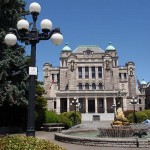 (Vancouver, January 31, 2014) Neighbourhoods for a Sustainable Vancouver today submitted its comments to Coralee Oakes, B.C.’s Minister of Community, Sport and Cultural Development, on the White Paper on Local Government Elections Reform. Today is the deadline for public comment.
(Vancouver, January 31, 2014) Neighbourhoods for a Sustainable Vancouver today submitted its comments to Coralee Oakes, B.C.’s Minister of Community, Sport and Cultural Development, on the White Paper on Local Government Elections Reform. Today is the deadline for public comment.
The main points of the submission are:
- Please retain the three year terms of civic office. Do not change to four years.
- Proposed “Reforms” do nothing to restrain corrupting influence of “big money” in municipal politics.
- Some “key changes” will actually hurt grassroots campaigning and free speech.
- Please do not allow Vancouver City Council to makes its own rules for election campaign finance. NSV believes that the current City administration is too compromised by systemic conflict of interest to be entrusted with this responsibility.
- Expense limits are not enough. Caps are also needed on campaign contributions – in the 2014 civic election.
The full text of the NSV media release and the submission to the Provincial Government is available here.
******************
NSV calls for deeper and quicker reforms to civic election campaign finance rules, retention of a 3-year election cycle
Neighbourhoods for a Sustainable Vancouver submitted a letter concerning the Municipal Campaign Finance Reform Motion on Notice at Vancouver City Hall. NSV calls for deeper and quicker reforms to civic election campaign finance rules and the retention of a 3-year election cycle. The full text of the letter is reproduced here.
At a consultation with elector organizations on January 14, 2014, attended by Coralee Oakes, Minister of Community, Sport and Cultural Development, Minister Oakes stated that she very much wanted to respect the request of the Union of BC Municipalities to switch from the current three years to a four-year election cycle, effective immediately. She said she would be fighting to achieve this when legislation goes up for debate within just weeks from now.
During the public consultation on the White Paper, there was a footnote on the recommendation regarding the election cycle.
Election Cycle
· Extend the term of office for local elected officials to four terms (8)
(8) UBCM subsequently passed a resolution to retain a three year term of office. The provincial government has agreed not to change the term of office.
The public has been led to believe that the four year term was not on the table, however, the most recent statement confirms the opposite.
We note that the Vancouver Councillor on the UBCM board is in favour of the four year term. NSV is very opposed to the proposed extension to a four year election cycle as stated in our letter to Council below, and are calling on Council to take a firm stand against the proposed extension.
******************
NSV statement on preparations for 2014 civic election
 (Vancouver, November 18, 2013) NSV will be running and/or endorsing candidates for Council, Mayor, Parks Board, and School Board. The composition of the NSV slates has not yet been determined. NSV is also looking into the potential for electoral cooperation with other organizations that support the NSV principles, similar to what we did for the last election.
(Vancouver, November 18, 2013) NSV will be running and/or endorsing candidates for Council, Mayor, Parks Board, and School Board. The composition of the NSV slates has not yet been determined. NSV is also looking into the potential for electoral cooperation with other organizations that support the NSV principles, similar to what we did for the last election.
Some of our comments on the upcoming election are as follows.
- NSV’s objective is a City Council, Parks Board and School Board dominated by representatives that are socially, environmentally, and fiscally responsible, firmly committed to community involvement in decision making, and free of conflicts of interest.
- The previous councils in Vancouver over past several election cycles have done enormous damage to democracy and civic engagement, and we believe that Council needs to be more representative and responsive to its citizens.
- Regulators should never be funded by those they regulate. We strongly call for election finance reforms, and self discipline/voluntary restraint by NPA and Vision Vancouver, the developer/union-funded parties.
Some background on NSV and our platform is available on our website nsvancouver.ca
More information as follows:
NSV history: https://nsvancouver.ca/about-us/formation/
NSV Principles https://nsvancouver.ca/about-us/principles/
Note: Our policies from 2011 are in the process of being updated and the current draft is here for download: NSV Updated Draft Sec 1 Basic Principles V14
******************
MEDIA RELEASE
NSV says local government election “reforms” conceal a Trojan Horse that will weaken democracy, and calls for deeper and quicker reforms, retention of 3-year election cycle
(Vancouver, October 23, 2013) Neighbourhoods for a Sustainable Vancouver today submitted its comments to Coralee Oakes, B.C.’s Minister of Community, Sport and Cultural Development, on the White Paper on Local Government Elections Reform. Today is the deadline for public comment.
Neighbourhoods for a Sustainable Vancouver (NSV) is disappointed by and largely opposed to the so-called “reforms” put forward by the provincial government in its recently-published White Paper on Local Government Elections Reform.
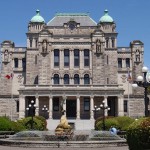 According to the White Paper, proposed changes “are the most significant in nearly two decades”. But the proposed package of minor adjustments, stemming from work of the Local Government Elections Task Force established in 2009, includes absolutely nothing to restrain the corrupting influence of “big money” on municipal politics. Instead of practical and progressive measures to reign in the unlimited campaign contributions that are undermining the democratic foundations of accountable civic governance, the proposed “reforms” amount in many respects to a regressive attack on grassroots political organizing and free speech.
According to the White Paper, proposed changes “are the most significant in nearly two decades”. But the proposed package of minor adjustments, stemming from work of the Local Government Elections Task Force established in 2009, includes absolutely nothing to restrain the corrupting influence of “big money” on municipal politics. Instead of practical and progressive measures to reign in the unlimited campaign contributions that are undermining the democratic foundations of accountable civic governance, the proposed “reforms” amount in many respects to a regressive attack on grassroots political organizing and free speech.
The main points of the submission are:
- Proposed “Reforms” do nothing to restrain corrupting influence of “big money” in municipal politics.
- Some “key changes” will actually hurt grassroots campaigning and free speech.
- Please do not allow Vancouver City Council to makes its own rules for election campaign finance.
- Expense limits are not enough. Caps are also needed on campaign contributions – in the 2014 civic election.
- Please retain the three year terms of civic office. Do not change to four years.
NSV is concerned that the cosmetic changes to campaign finance rules — including a possible shift to four-year terms of office — conceal a Trojan Horse that will weaken democracy.
Download RELEASE MEDIA_NSV_election finance reform public comment_23-Oct-2013-WEB
Download SUBMISSION NSV_submission_election finance reform_23-Oct-2013-Final
See the whole submission online here: https://nsvancouver.ca/nsv-submission-campaign-finance-reform/
******************
Sign the non-partisan “Get Big Money out of Civic Politics!” – Petition for Municipal Election Campaign Finance Reform. Much is happening in your city of Vancouver. Stay tuned for more news.
Vancouver City Council made Large Changes to Heritage Density Bank and Transfer of Density on Sept 25th, 2013. Read the full text of our letter to Council here. The changes have implications all across the City. Council heard from speakers on this item at the City Finance and Services meeting on Wednesday, September 25.
Citywide Rally and March on City Hall Sept 24, 2013
Neighbourhoods from across Vancouver gathered at a large citywide rally on Tuesday, September 24, 2013. The demonstration protested the City’s top-down planning processes. Neighbourhood reps previously met on September 15 from many parts of the city to connect the dots and compare notes. Hastings East, Hastings Sunrise, Marpole, West End, Dunbar, Kits, Point Grey, Mount Pleasant, Riley Park, Little Mountain, Yaletown, Norquay, False Creek, Downtown Eastside, Grandview-Woodland, and more. The common thread seems to be that communities are being excluded from meaningful planning processes. This article and photo in Eye on Norquay put this rally into historical context, going back to the Ecodensity debates of 2007. NSV was born at that time as a network of neighbourhoods, a grassroots response to the greenwashing of “Ecodensity” and top-down imposition of centralized planning under the NPA regime, which has been accelerated under Vision Vancouver. Both regimes have been funded primarily by the development industry.
****************************
Neighbourhoods for a Sustainable Vancouver continues to stand for…
 Neighbourhood-based Real Democracy
Neighbourhood-based Real Democracy
- Reform campaign finance: Regulators of land use policy should not be funded by those they regulate. The development industry is the largest funder of the NPA and Vision Vancouver.
- Respect neighbourhoods: We promote local community grassroots planning processes that respect existing visions and local area plans.
- Strengthen neighbourhood representation: Through partial or full wards, neighbourhood councils, community advisory bodies and other mechanisms such as polling on significant issues based on the voters’ list to determine public support.
 Sustainability
Sustainability
- Strive for a holistic balance: Environmental, social and economic sustainability implemented through community engagement.
 Vancouver-based Solutions
Vancouver-based Solutions
- Find solutions that work: Accommodate growth in ways that suit the uniqueness of Vancouver and the character of our neighbourhoods.We pledge to act on the public’s interest for the people of Vancouver.
Local funds shouldn’t pay for transit
Opinion: If Victoria and Ottawa don’t pay, property taxes and development fees are diverted from other programs
This article by Elizabeth Murphy was a Special to The Vancouver Sun July 23, 2013.
Excerpt: Using development to fund transit shifts to municipalities a provincial/federal funding responsibility and undermines local community planning objectives. It is time to dismiss this model and look at sensible options, with broad consideration of more affordable transit alternatives. Read more…
For full article in Vancouver Sun, click here.
Vancouver’s development plan lacks public input
Opinion: If you haven’t heard about it, you’re not alone
This article by Elizabeth Murphy was in print as special to the Vancouver Sun May 24, 2013. It is about the “Regional Context Statement – Official Development Plan” going to Public Hearing on June 11. This is the first coverage that has appeared in any mainstream media. Image caption: The Official Development Plan and Regional Context Statement plan will direct all development in the city for the next 30 years.
Excerpt: Vancouver’s over-arching plan that will direct all development in the City of Vancouver for the next 30 years has been referred to a June 11, 2013 public hearing without prior public input. This is where all of the city’s development and land use policies are bundled up into one document and presented with a plan to Metro Vancouver (the Region, GVRD) for approval.
Called the Official Development Plan and Regional Context Statement, the plan is second in importance only to the Vancouver Charter, which legally governs the city.
City hall has been working on these plans with the region, province and TransLink under the public radar for more than a decade. It continues to present them as merely procedural, even though they will affect the future of every neighbourhood and every citizen of Vancouver.
For full article in Vancouver Sun, click here.
Update: For video and a brief report of our “Panel Discussion on Funding our Community Centres to better serve the needs of all” on March 13, 2013, at the Hollywood Theatre, please click here.
